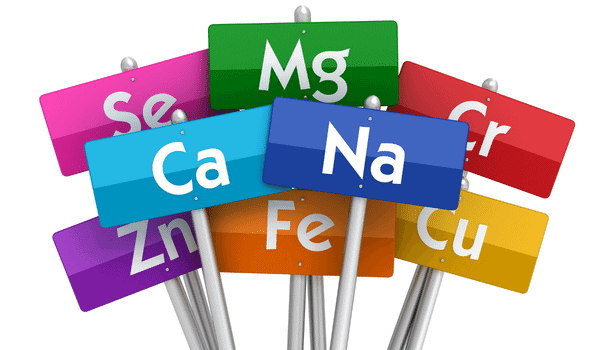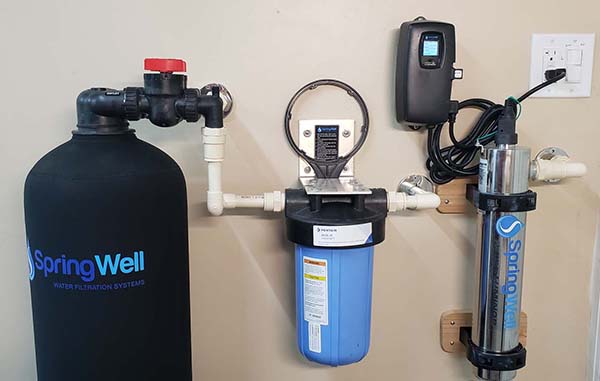Whole-house water filters are great at removing contaminants—but what about the minerals your body actually needs?
Before you install a system, it’s smart to know how different filters affect minerals like calcium and magnesium—and whether you’ll need to make any adjustments to keep your water (and your health) balanced.
Let’s take a closer look at what really happens to minerals during filtration—and how to make sure you’re getting the best of both worlds: clean water and essential nutrients.
🧠 Quick Takeaways
- ✅ Water Naturally Contains Essential Minerals – Like calcium, magnesium, potassium, and a little sodium
- ✅ Some Filters Remove Minerals—But Not All – Carbon filters preserve most minerals, while reverse osmosis removes nearly everything
- ✅ Most Whole-House Filters Leave Healthy Minerals Intact – Especially systems using carbon or sediment filtration
- ✅ Balance Matters – You can always add minerals back if you’re concerned about intake
- ✅ Choose Your Filter Carefully – Efficiency, certification, and water flow all impact performance and mineral retention
🪨 What Are Minerals?

Some of the good stuff in your water doesn’t come from pipes or treatment plants—it comes from nature. As water moves through soil and rock, it picks up tiny amounts of minerals that your body actually needs.
Here are a few you’ll usually find in clean, untreated water:
- Calcium
- Magnesium
- Potassium
- Sodium
- Iron
- Zinc
While these minerals are important, balance is key. A little helps keep your body running smoothly—too much can cause issues or buildup in plumbing.
⚖️ Are All Minerals Good for You?

Some minerals in water are essential—others, not so much.
Your body uses calcium and magnesium to support: bones, muscles, and nerves. But in large amounts, even helpful minerals can cause problems. And some, like iron or manganese, can damage plumbing or leave stains behind.
That’s why filtering your water is often more about balance than total removal. The goal isn’t to strip water bare—it’s to keep the good while taking out the bad.
💪 Why Water Minerals Matter
Your water can carry trace minerals that actually benefit your health. As it travels through rock and soil — it picks up helpful elements like: calcium, magnesium, and potassium. This helps support your daily hydration and balance.
🌟 What They Help With:
- 🦴 Bone Strength – Calcium supports bones, and magnesium helps your body use it
- 💓 Heart & Nerves – Potassium and magnesium support steady heart rhythm and muscle relaxation
- ⚡ Energy & Enzymes – Magnesium plays a role in hundreds of daily body functions
- 💧 Fluid Balance – Sodium and potassium help regulate hydration and blood pressure
While most of us get minerals through food, your water can still play a supporting role—especially if you’re on a well and filtering at the source.
🚿 Do Whole-House Filters Remove Good Minerals?

Most whole-house filters are designed to remove harmful contaminants—not the minerals your body actually needs.
Carbon-based systems (like sediment or activated carbon filters) typically leave healthy minerals alone. It’s the more aggressive options—like reverse osmosis or distillation—that strip them out completely.
💡 Good to Know:
- Carbon filters = mineral-friendly
- Reverse osmosis = removes nearly everything
- Distillation = effective, but strips the good with the bad
If you want filtered water that still delivers essential minerals like calcium or magnesium, a system that preserves them—or reintroduces them—can strike the right balance.
⚖️ Balancing Clean Water and Mineral Intake

Filtered water is safer—but it often contains fewer minerals than untreated well or tap water. That’s not always a bad thing, especially if your raw water has excess iron, manganese, or hardness.
Still, if you’re using a system that removes everything (like reverse osmosis or distillation), it’s worth thinking about how to add some of the good stuff back in.
🧃 Easy Ways to Keep Minerals in the Mix:
- 💠 Choose a carbon-based filter – Most whole-house systems don’t strip healthy minerals
- 🔁 Add a remineralization stage – Some filters include cartridges that add calcium and magnesium back
- 🧂 Mix in mineral-rich bottled or spring water – Especially if you’re relying solely on RO
- 🥦 Prioritize your diet – You get most essential minerals from food, not your faucet
🛠️ Expert Picks: Filters That Keep It Balanced

If you’re looking for a whole-house filter that keeps water clean without stripping out all the good stuff, here are a few top performers:
- 💧 SpringWell CF1 Carbon-based system that removes contaminants while retaining healthy minerals like calcium and magnesium.
- 🌀 Kind E-1000 Uses multi-gradient sediment and coconut shell carbon filters for high flow, low maintenance, and mineral-friendly filtration.
- 🔧 iSpring WGB32B A powerful 3-stage system that filters out chlorine, sediment, and heavy metals—without zapping your water’s natural balance.
These systems offer a solid mix of: performance, pressure, and mineral retention—perfect if you’re aiming for that “clean but not sterile” sweet spot.
🧼 Final Thoughts
Whole-house filters are a great investment for cleaner water—but it’s smart to know how they affect the minerals your body uses every day. Most systems won’t wipe out the good stuff, but some do, especially reverse osmosis.
If you’re aiming for clean, balanced water, just choose your system wisely—and consider options that preserve or restore essential minerals. That way, you get the best of both worlds: protection from contaminants and a healthier glass at the tap.
 146 people found this helpful. Was this guide helpful to you?
146 people found this helpful. Was this guide helpful to you? 

